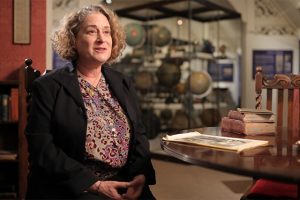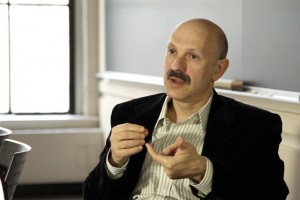Ancient Greek and Roman Science
Historian and Philosopher of Science Liba Taub on the definition of science, Aristotle, and the ancient ideas ...
When did Stalin use limity to punish his enemies? How did so-called “troiki” of NKVD operate? Cullen Professor of Economics at University of Houston, Paul Gregory, speaks on the history of repression in the Soviet Union.
We call it ‘quotas’, in Russian they call it limity. Stalin used limity to punish his perceived enemies twice. Once was during collectivization, which began in 1929 and was largely completed by 1932, and he used quotas in the period 1937-38, which was the period of the Great Terror. In each case he divided the Soviet Union into regions and he gave the regional leaders quotas. In the case of collectivization, quotas were how many people to shoot (not terribly many), how many to put in jail (more), and how many to deport to remote regions.
In 1937 Stalin sent out a telegram to 65 regions saying: “It has come to our attention that enemies are collecting in your regions. You should look at your records and tell me how many enemies are living in your region and you should divide them up into very dangerous enemies and less dangerous”. So, there was category 1 and category 2. Category 1: they should be shot, and if you should read the order, “to be shot” was put in capital letters. The other should go into the Gulag. This telegram went out in early July. The 65 regions had to calculate how many people they should kill or put into Gulag and send this telegram to Stalin.
There was some academic research done about who caused this to happen and why it happened. Some thought that maybe Stalin was not to blame, and there were other reasons for doing it. Now that we have the full records, it’s clear that he ordered it, and he stopped it when he wanted it to stop, which was in November of 1938. So, somehow a large percentage of the Russian population, maybe 40%, think that this monster was a positive character in history.

Historian and Philosopher of Science Liba Taub on the definition of science, Aristotle, and the ancient ideas ...

MIT Lecturer Vyacheslav Gerovitch on Sergei Korolev’s design bureau, the leadership of the Soviet cosmonauts, ...

Political scientist Daniel Treisman on Aristotle, revolutions, and misperceptions of levels of inequality